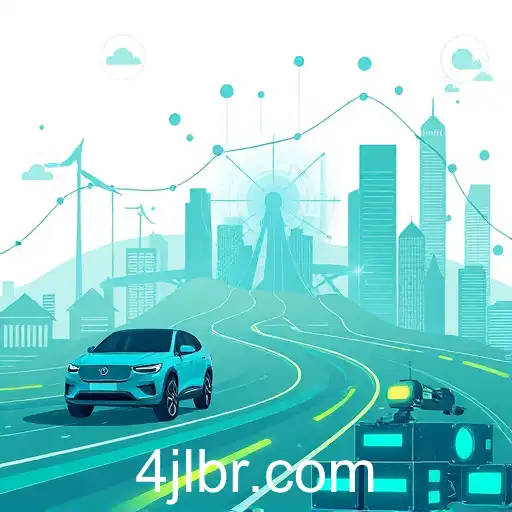
Exploring the transformative power of AI on the global economy and sustainable development.
As we navigate the midway point of the 2020s, the role of artificial intelligence (AI) in reshaping economies and driving sustainable development has never been more pronounced. With recent advances, AI is moving beyond mere automation to become a catalyst for economic innovation and sustainability.
The tech industry continues to be at the forefront, with companies like OpenAI and Google investing heavily in improving AI models that can optimize supply chains, enhance decision-making, and improve energy efficiencies. These innovations are pivotal in reducing carbon footprints and enhancing resource management, addressing global warming challenges—a pressing concern highlighted by the recent climate report from the United Nations.
Beyond environmental impacts, AI is fostering economic growth by redefining industries. In the automotive industry, for example, AI-driven electric and autonomous vehicles are hitting the roads, promising reduced emissions and improved safety. Simultaneously, healthcare systems worldwide are adopting AI to enhance diagnostics and patient care, as evidenced by recent breakthroughs in early detection of diseases.
However, this transformative power comes with significant challenges. Ethical considerations around data privacy, algorithmic bias, and job displacement remain critical issues. Policymakers around the globe are now tasked with creating frameworks that ensure AI development aligns with societal values and fairness. The European Union’s recent AI Act is a testament to the efforts underway to balance innovation with ethical governance.
As nations tout the potential of AI-driven growth, there is a call for collaborative governance to ensure equitable access to AI technologies. International partnerships are forming to share research and resources, setting a precedent for a global AI economy.
In conclusion, as AI continues to redefine the economic landscape, its potential to advance sustainable practices and drive growth presents opportunities and risks. The coming years will be crucial in shaping a future where AI's benefits are maximized for all, highlighting the importance of strategic and inclusive policies that guide this technological frontier.




